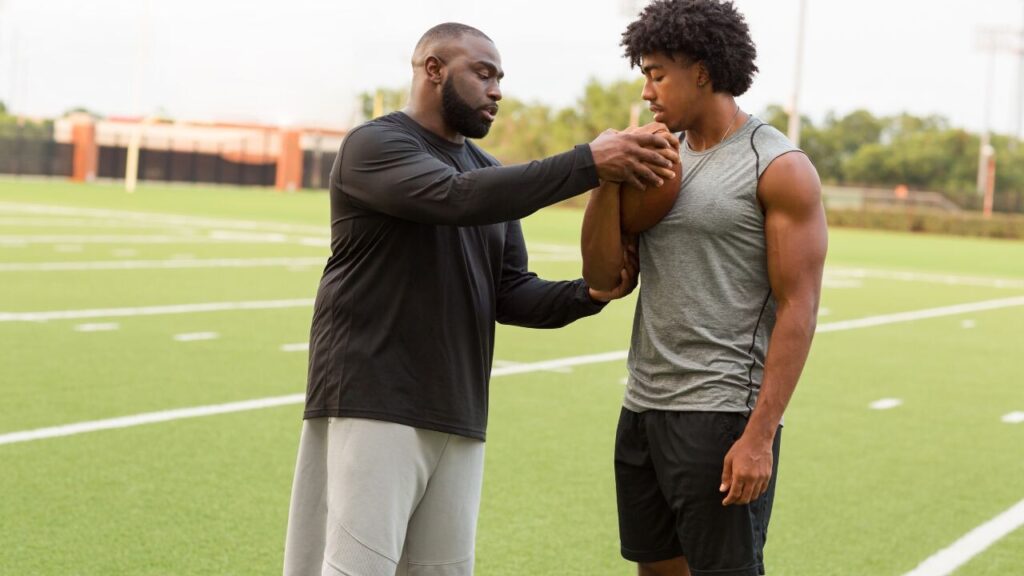Introduction
The importance of mental toughness and emotional intelligence in sports cannot be overstated. For young athletes, this means the ability to remain focused, determined, and confident under pressure. In this article, we will explore the intricacies of mental coaching for young athletes and the significant role it plays in their overall development and success. We’ll delve into the various aspects of mental coaching, its benefits, and ways to incorporate it effectively into a young athlete’s training routine.
In the dynamic world of sports, physical aptitude is not the only factor determining success. Increasingly, the psychological aspect is gaining recognition for its critical role in shaping an athlete’s performance. For young athletes especially, the inclusion of mental coaching into their routine could be the game-changer. Introducing ‘mental coaching for young athletes’ as a key component of their overall development, the focus shifts from not just the physical, but to a more holistic approach.
Mental coaching for young athletes is more than just a concept; it’s a revolution in sports training. By focusing on aspects like confidence building, focus, stress management, and emotional intelligence, mental coaching strives to give young athletes the mental fortitude necessary to excel in their sport. It is a powerful tool that empowers athletes to perform under pressure, handle defeat gracefully, and boost their overall performance. The incorporation of mental coaching at an early age helps mold resilient athletes who not only excel in their chosen sport but also in life.
However, mental coaching for young athletes is not just about performance enhancement. It’s about fostering an environment where young athletes can communicate openly about their fears, anxieties, and aspirations. It’s about teaching them to visualize their success, set achievable goals, and stay focused amidst challenges. Through personalized strategies and continuous feedback, mental coaching ensures the growth of young athletes in a nurturing, supportive environment. This novel approach to athletic training equips young athletes with the mental resilience to face the challenges of competitive sports and beyond.
Table of Contents
Understanding the Importance of Mental Coaching for Young Athletes
The Power of the Mind in Sports
The first step to appreciating mental coaching is understanding the impact of mental strength in sports. In any competition, while physical prowess is critical, mental resilience often determines who wins and who falters under pressure. It’s about resilience, focus, and the ability to manage emotions – crucial qualities that can be enhanced through mental coaching.
Why Young Athletes Need Mental Coaching
Mental coaching isn’t just for elite athletes. Young athletes can hugely benefit from it, helping them to cope with stress, develop mental resilience, and boost their performance. Mental coaching can give them the tools they need to handle defeat gracefully, motivate themselves, set achievable goals, and stay focused.
Key Components of Mental Coaching for Young Athletes
Building Confidence
One of the foundational elements of mental coaching is building confidence. Confidence enables young athletes to perform at their best, overcome challenges, and bounce back from setbacks. By reinforcing their abilities and accomplishments, mental coaching helps to build a strong, positive self-image.
Developing Focus
Maintaining focus, especially in high-pressure situations, is another aspect that mental coaching emphasizes. Young athletes are taught various techniques to eliminate distractions, helping them to concentrate better and perform more consistently.
Managing Stress and Anxiety
Competitive sports can cause significant stress and anxiety in young athletes. Mental coaching provides strategies and techniques, such as relaxation exercises and visualization, to help athletes manage these emotions effectively.
Implementing Mental Coaching into Training
Encouraging Open Communication
Mental coaching should foster an environment of open communication. Young athletes should feel comfortable discussing their feelings, fears, and anxieties with their coaches. This openness allows coaches to understand their mental state better and provide personalized coaching.
Using Visualisation Techniques
Visualization is a powerful tool in mental coaching. Young athletes can be taught to visualize their success, which helps in goal setting and increases their confidence.
Practicing Mindfulness
Mindfulness exercises, such as deep breathing and meditation, are increasingly being incorporated into mental coaching. These practices help young athletes stay present, reduce anxiety, and enhance their concentration levels.
Advancing with Mental Coaching for Young Athletes
In this second part of our exploration into mental coaching for young athletes, we will delve further into how this form of training can be individualized and advanced to maximize its effectiveness. Additionally, we will shed light on the role of parents, guardians, and coaches in this process, and how they can contribute to the development of young athletes’ mental skills.
Personalizing Mental Coaching
Individual Assessment and Tailored Strategies
Every athlete is unique, both in terms of physical capabilities and mental make-up. Therefore, mental coaching needs to be tailored to each athlete’s individual needs. A comprehensive assessment of the athlete’s strengths, weaknesses, and mental state can provide a solid foundation for crafting a personalized mental coaching strategy.
Regular Monitoring and Feedback
A crucial part of effective mental coaching is regular monitoring and constructive feedback. By frequently assessing an athlete’s mental resilience, focus, and ability to manage emotions, coaches can adapt their strategies and address any issues as they arise.
The Role of Coaches and Parents
Coaches as Mental Strength Builders
Coaches play a pivotal role in the mental development of young athletes. Their guidance, encouragement, and reassurance can go a long way in building athletes’ mental resilience. Moreover, coaches can instill essential skills like goal setting, focus, and coping with stress.
Parents’ Contribution to Mental Coaching
Parents or guardians are equally instrumental in this process. They are the initial role models for young athletes and their attitude, actions, and words significantly impact the athletes’ mindset. Parents can contribute to mental coaching by encouraging their kids, maintaining a positive environment, and fostering a growth mindset.
Ongoing Advancements in Mental Coaching
As our understanding of sports psychology continues to evolve, so does the field of mental coaching. With advancements in technology, there are now numerous digital tools and platforms that offer mental coaching, enabling athletes to have access to these resources anytime, anywhere.
Also read this Blog: What is Mental Coaching and How Can You Benefit? Top 7 Powerful Benefits of Mental Coaching
Conclusion
Mental coaching for young athletes is an exciting and essential field that goes hand-in-hand with physical training. By tailoring the mental coaching approach to each athlete and harnessing the supportive roles of coaches and parents, young athletes can develop the mental toughness needed for success.
In conclusion, mental coaching for young athletes is an essential and influential component of their development and success. The multifaceted nature of sports demands that young athletes are not just physically adept but also mentally strong. By focusing on building their mental fortitude, stress management skills, emotional intelligence, and goal-setting capabilities, mental coaching creates a comprehensive development plan for them.
As we have explored in this article, mental coaching for young athletes is much more than just an adjunct to their physical training. It is a key determinant of their ability to handle pressure, maintain focus, and manage emotions in the competitive world of sports. With regular individual assessment, personalized strategies, and ongoing feedback, mental coaching cultivates resilience and confidence in young athletes, preparing them for the varied challenges that lie ahead.
Finally, the significant roles of coaches, parents, and guardians are integral to the successful implementation of mental coaching strategies. Their support, encouragement, and positivity contribute substantially to the mental growth of young athletes. The world of sports is ever-evolving, and as we continue to recognize the importance of mental strength in athletic performance, mental coaching for young athletes will remain a central focus, empowering the sports stars of tomorrow.
My name is Ryan Joseph Kopyar, a seasoned professional in the health and wellness industry, equipped with a comprehensive skillset to transform your life through mindset coaching, life coaching, and mental coaching.
Are you ready to break through barriers, revitalize your life, and unlock the power of your mind? Reach out to me at 973-224-8171, or connect with me on:
Facebook: Ryan Kopyar
Instagram: @ryankopyar
YouTube: RyanKopyar
Your journey to wellness is one decision away. Start now with Ryan Kopyar, your partner in holistic wellness.



